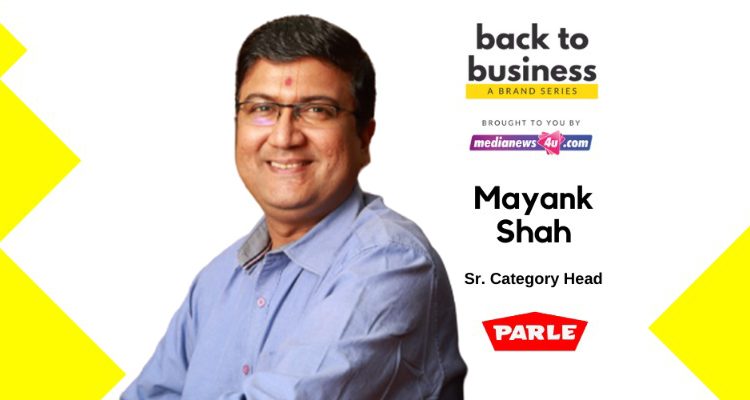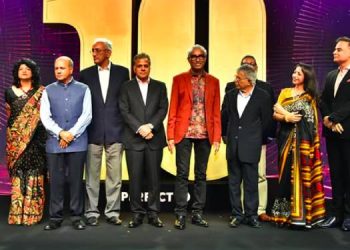The new normal in a world where Covid-19 unfortunately is becoming a part of our life and will bring about many changes in the way businesses will be conducted, and more importantly the way we live our life.
Businesses and brands are now are making their way back into the business; planning their communication plans for a new world post the covid-19 lockdown, keeping a note of some of the new buzz words such as ‘social distancing’, ‘work from home’ and the latest one; ‘atmanirbhar’.
Well Covid-19 is not over yet, but it’s definitely the start of good. It’s time for Back to Business…
Today we spoke to Mayank Shah, Category Head at Parle Products Pvt Ltd.
How are you coping with the impact of COVID-19 on Parle Products and how effectively have you used the lockdown period?
This was completely unexpected as we all know lockdown was announced and though everybody had an inkling and honestly most people in India were not really prepared for the complete lockdown, the initial path was really full of struggle in terms of getting the production back on track. And thankfully because we are a food company and we were exempted, and of course there were restrictions, but here was our initial preparedness,10 to 15 days went into getting the operations back on track and as we speak even today we are working with about 60/65% of our capability.
One of the reasons is the government had notified all the companies that they cannot have their operations with human labour of more than 50% of the actual labour, and we are a labour intensive industry. We did exactly how it should be, but we tried making certain changes in the production layout and products that can be made with 65% labour.
The impact in terms of brand is that we are currently at about 60/65% of our capacity as compared to last year, we are still much better compared to many other companies who have not been able to either operate in lockdown, because of government norms or because of labour problems or difficulty in getting permits, in that way we are far better.
The idea now would be to ensure that will abide with the government’s restrictions and that is happening, we are talking to the government and trying to make them understand that as we are in the food sector, they should allow in a staggeringly way by slowly increasing the labour force or by reducing the restrictions that are there.
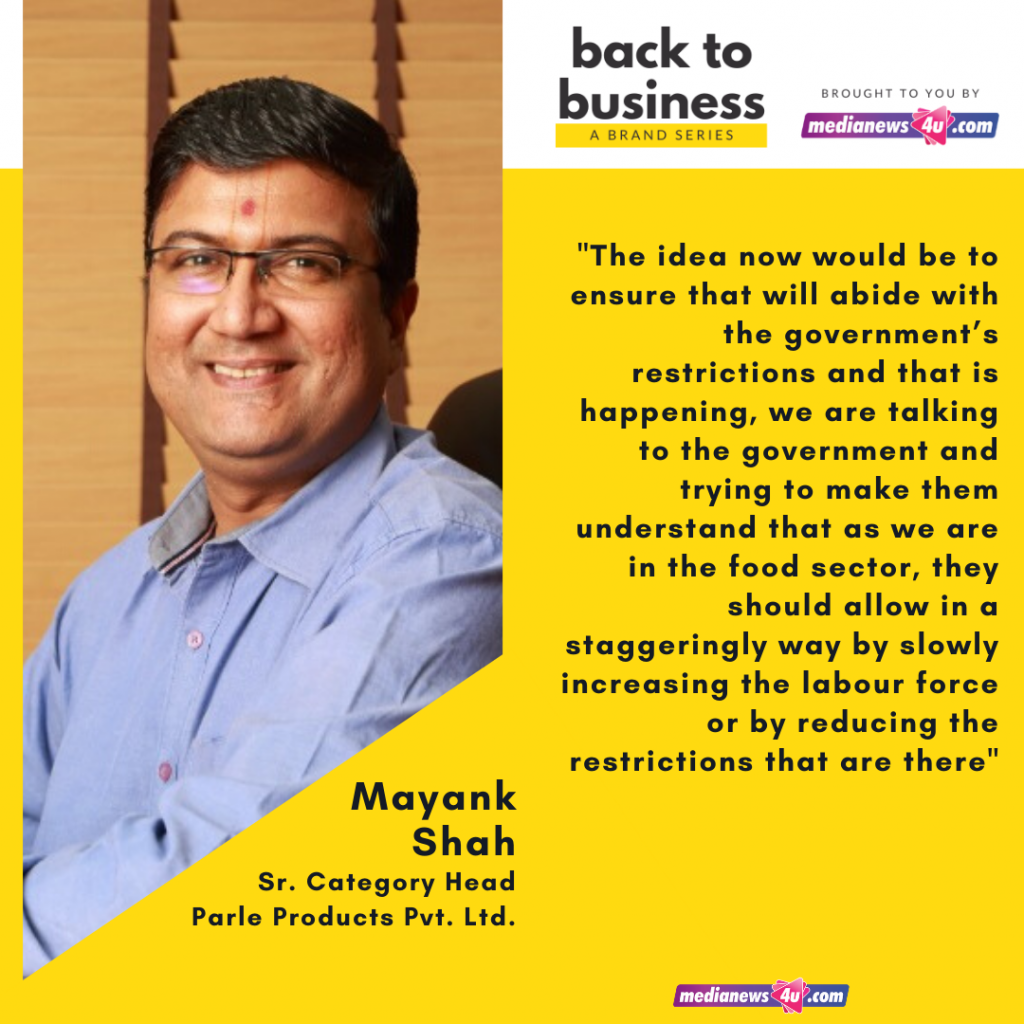
We have actively worked on maintaining social distancing to ensuring sanitisation, checking temperatures of the workers three to four times a day and now we will be requesting the government because what is happening is that there is an impact on food production andmost food products are not available.
Due to the lockdown, the consumption of food products has gone up. See, normally what happens is when you are in office and working but now that everybody in the family is at home, kids want something to keep munching so do the adults and the consumption of food has gone up. The demand has gone up, but the supply is not there, so there is a huge demand-supply gap, which we are currently looking at bridging.
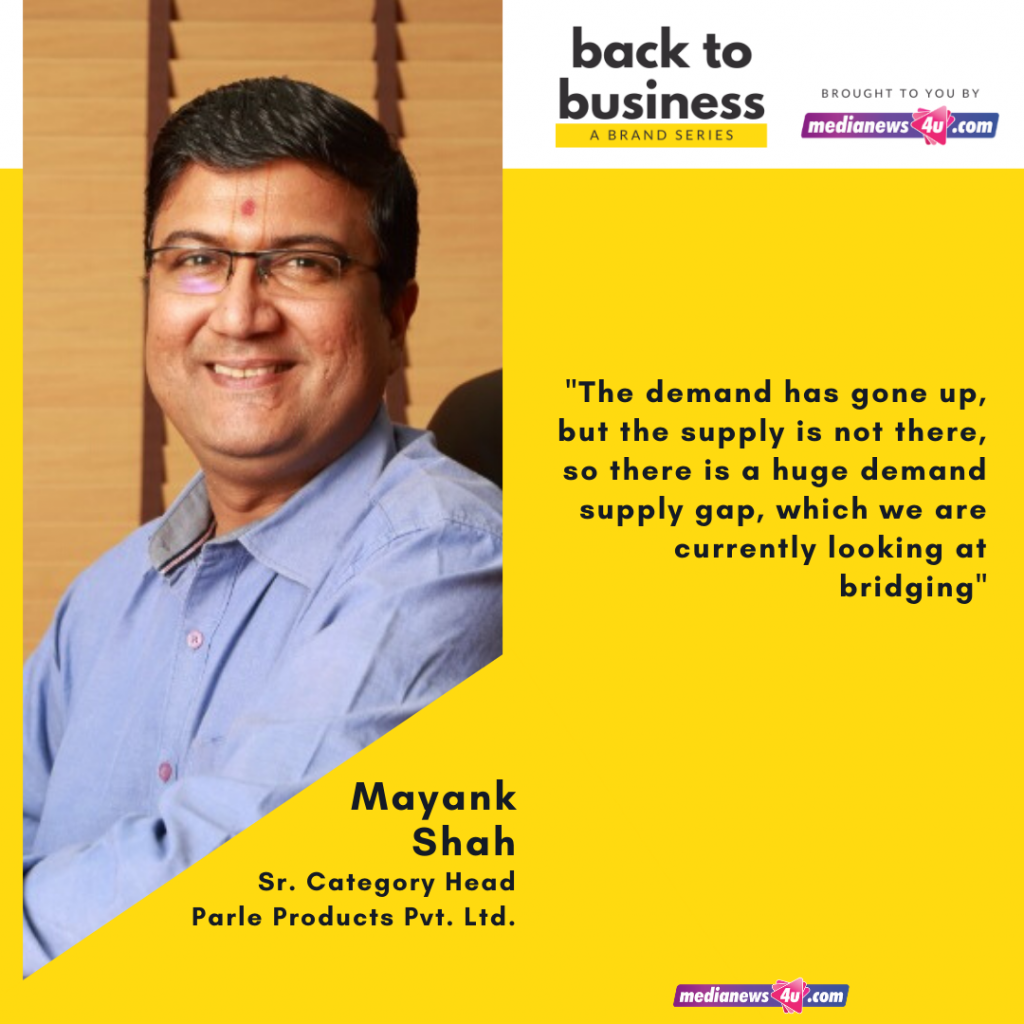
The quest to a solution to a particular crisis helps invent new business opportunities, sometimes leads to revisit the revision of existing business models, what sort of innovation has or will COVID-19 bring into your industry?
Well not the product innovations but yes the process innovations, there are a lot of process innovations that have happened in Covid-19, so the first thing that COVID has taught us was that while you thought of labor-intensive industry, you cannot be completely relying on labour alone, you have to look at automation, change in process load, where you are less labour dependent, so that in case of a situation like this your production does not suffer as a result of unavailability of labour, that is number one.
We all know the problems of migrants, they have gone back and we do not really think that they would be coming back, in the near future. The labour problem going forward is going to be there, the cost of labour is going to increase in a situation like that, I thinkin terms of innovation, the biggest learning that has come across to us is that you cannot be so much reliant on labour, you will have to look at your automation, it is not possible for companies to not look at automation, we cannot be completely dependent on labour force alone.
Thirdly, another innovation or I would say there are of course process operations also, how can you make your processes or how can you orient your processes that the labour requirement goes up, how can the efficiency kick in, now is the time to focus on few, and how you can increase your efficiencies by doing that, so that you cater to the maximum market and that is another thing that we have learned.
The fourth thing or I would say, is probably the innovation in e-commerce channels, there was a study earlier which that e-commerce will grow exponentially in the next 10 years. The contribution of e-commerce to the total FMCG businesses is less than 1% or nearly 1%, which will go up to almost 10% in next few years.
What Covid-19 has done, that it has completely accelerated that, I would not be surprised with the contribution of e-commerce that reaches to about 10% of GDP in the next five or six years because, the adoption of technology and e-commerce as a medium, buying online has significantly increased during this particular time and has accelerated the adoption of e-commerce by the consumers.
We are also indexing beyond e-commerce, we are seeing new delivery models coming in, there are companies which are now getting into like Swiggy, Zomato and as you know, the internet itself has reoriented itself to deliver. Those are the innovations, new processes and new things coming up as a part of learning from Covid-19.
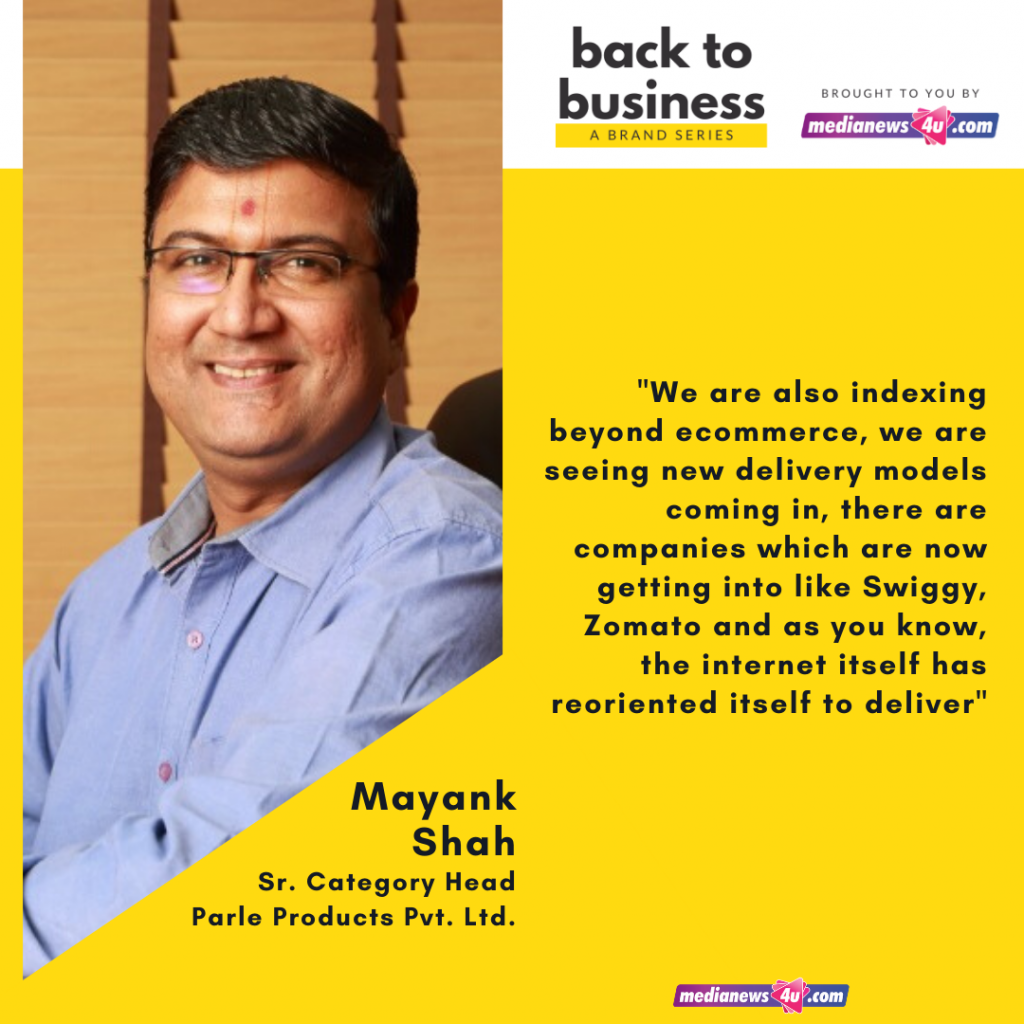
Do you think Parle as a product and as a company would want to start an e-commerce platform for your products only, instead of Amazon, Flipkart or Big Basket?
Very valid question at the end of the day, I would not have so many products to sell it and the cost of that infrastructure would be high, probably a company like Hindustan Lever can do it with that kind of range and I am sure they even tried doing it two/three times earlier, but they were they were not able to go as the last mile delivery cost is very high.
If you club multiple companies together and have a platform it can be done but with one company on its own cannot run it because the costs are prohibitively high. Bigger companies like Hindustan Lever with a huge spectrum of products can do it but for companies like us who are into limited categories will not be able to do it.
Some parts of the country are completely Covidfree and have opened up completely, but Mumbai and Delhi is still facing problems and partly in red, have you started your manufacturing in other parts of the country have things opened up or everything is sent out of Mumbai?
No, thankfully we do not have a manufacturing location in Bombay, all our manufacturing locations are outside Mumbai and Delhi, secondly, as I shared earlier, we are part of essential so production started about 8/10 days after lockdown we were exempted, even as we talk today, we are only at 65% and because of the restriction by government where we agreed that you cannot use more than 50% of your labour force, that is one.
Secondly, in the green zone, we are discussing with the government, all food companies along with CII, we have presented to the government that the availability of food in the market is not enough, there is a shortage of food products. At the grocery and the general store, let us increase our capacity because the consumers are finding it difficult to find products in the market. They have to allow us to increase the labour force, which we are presently using i.e. 50% it needs to be increased in a staggered way, then it will allow us to reach to the maximum capacity of 100%.
That is something that we are requesting the government, we are very hopeful that the government will relent on that and you will actually see that we will be able to operate with higher manpower. Companies are observing all the norms of social distancing and keeping a check on their workers in terms of their health, education of the labourers and their family.
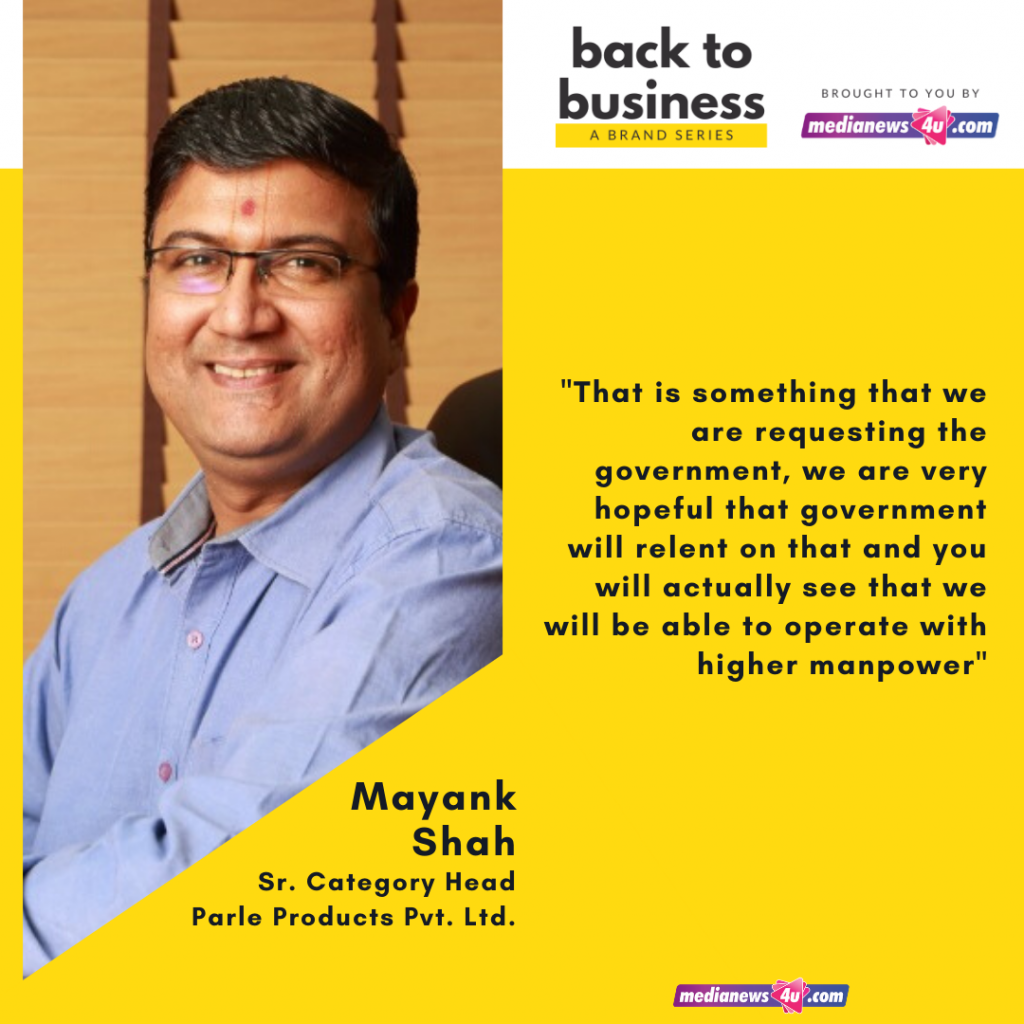
Big brands are not there on the grocery shelf but there are options available, so today what will be your communication strategy, once everything is completely open to bring back consumers back to you?
We are honestly a little lucky as compared to many other companies, as I said we are currently operating at 65% of our capacity and that is the case with most food companies, like the consumption of food has gone up. Let us say in the normal scenario, the condition or my capacity was 100 units today the demand has gone upto 150 to 160% and we are producing 65%.
As we speak my energies are completely focused on ensuring our supply chain meets that demand and be fortunate to put food on the table.
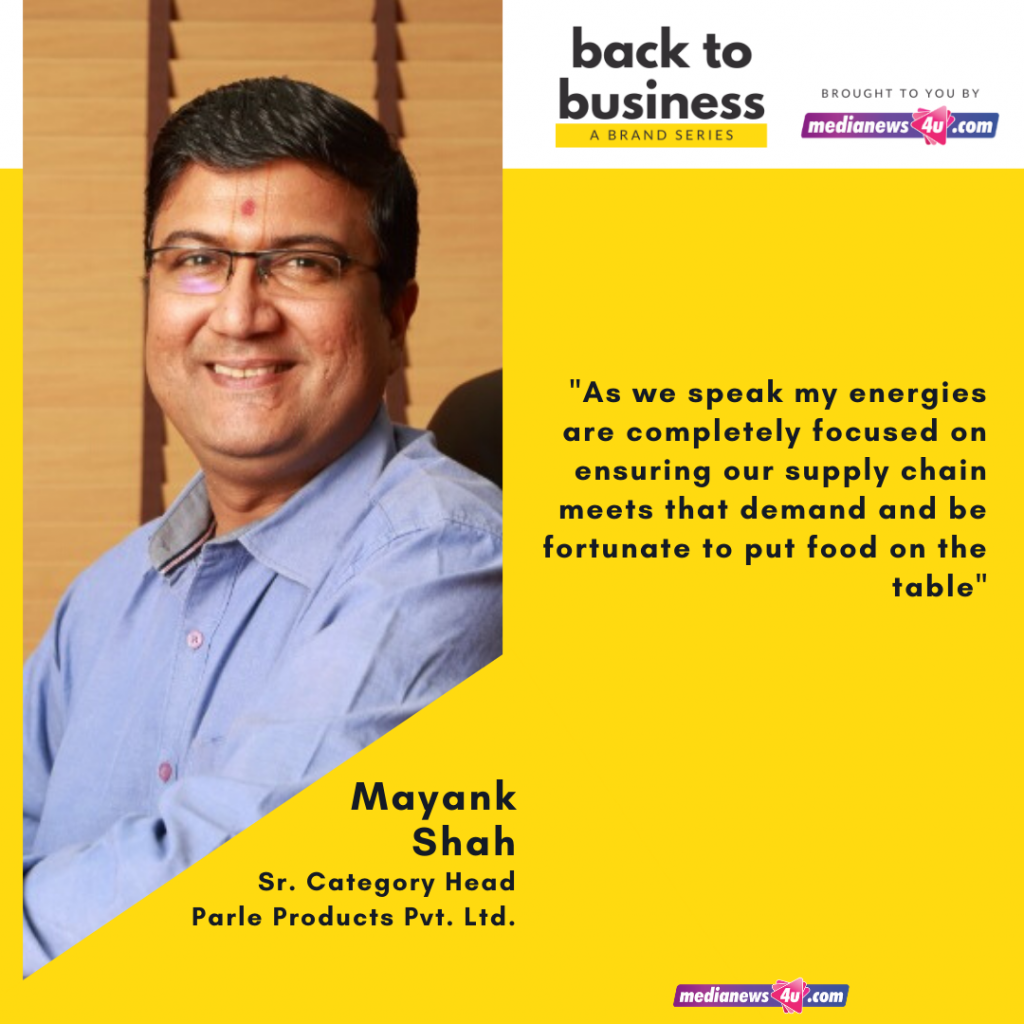
So how are you keeping the morale of your employees during this lockdown period and on a personal note what is keeping you positive?
If you look at our company, pre-dominantlyParle-G honestly it is not a biscuit and that is what we believe in and that iswhat most of Indians believe, Parle-G is more like a habit. There are many in India who like their cup of tea with Parle-G, it is one biscuit which is irreplaceable, they will require just Parle-G and nothing else, it is a staple for many in India.
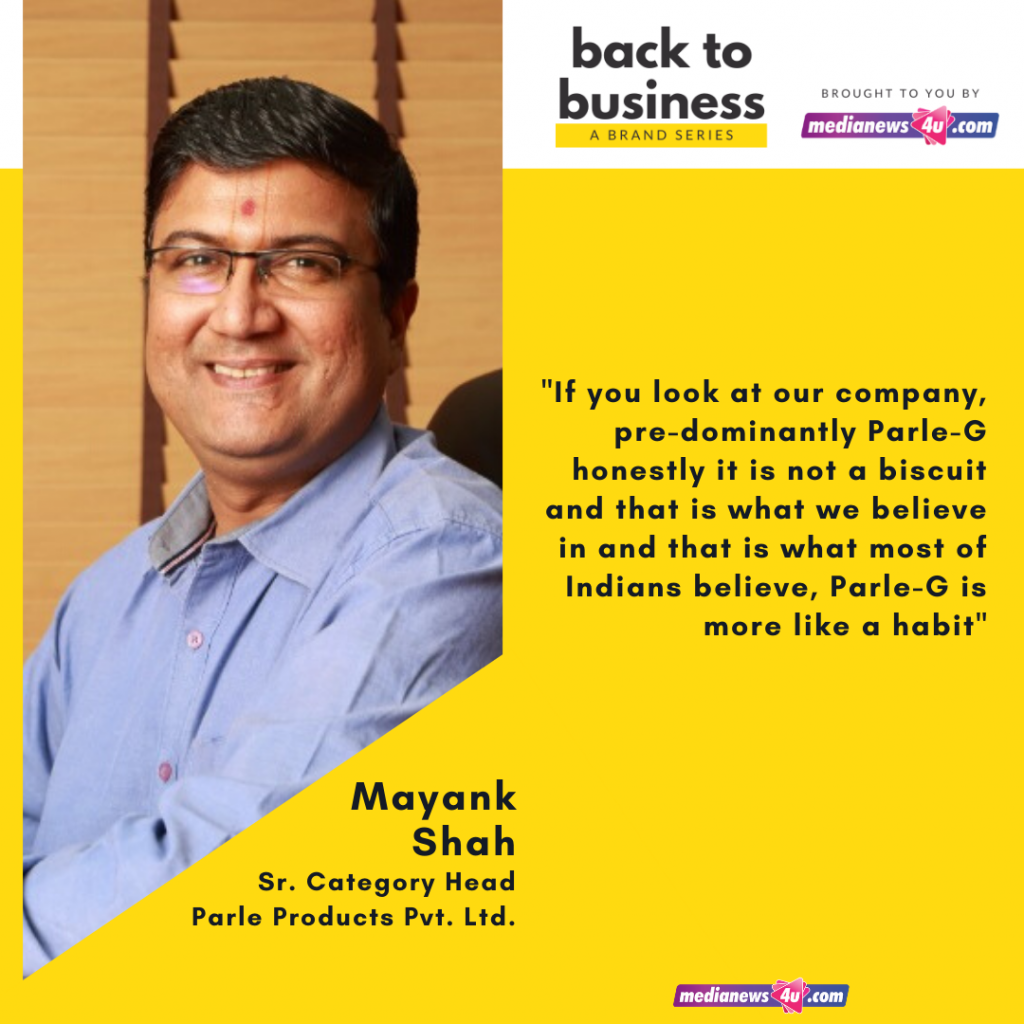
Secondly, if you look at this is one food item, which is probably the most affordable and affordable to everybody, as we speak, it is about the migrant labourers who are walking back home and we have donated three crore packs during lockdown and a lot of them have gone to people in need,this is the only thing that they are surviving on.
Internally, the way we work is we have told everybody this is a philosophy we believe in by which we are responsible somewhere to ensure that nobody goes hungry. There are many who cannot afford food, they are the one who will buy Parle-G as it is affordable to all. In these tiring times, if we do not function there will be many people who will go hungry and we are responsible for food security in our own little way for the country today.
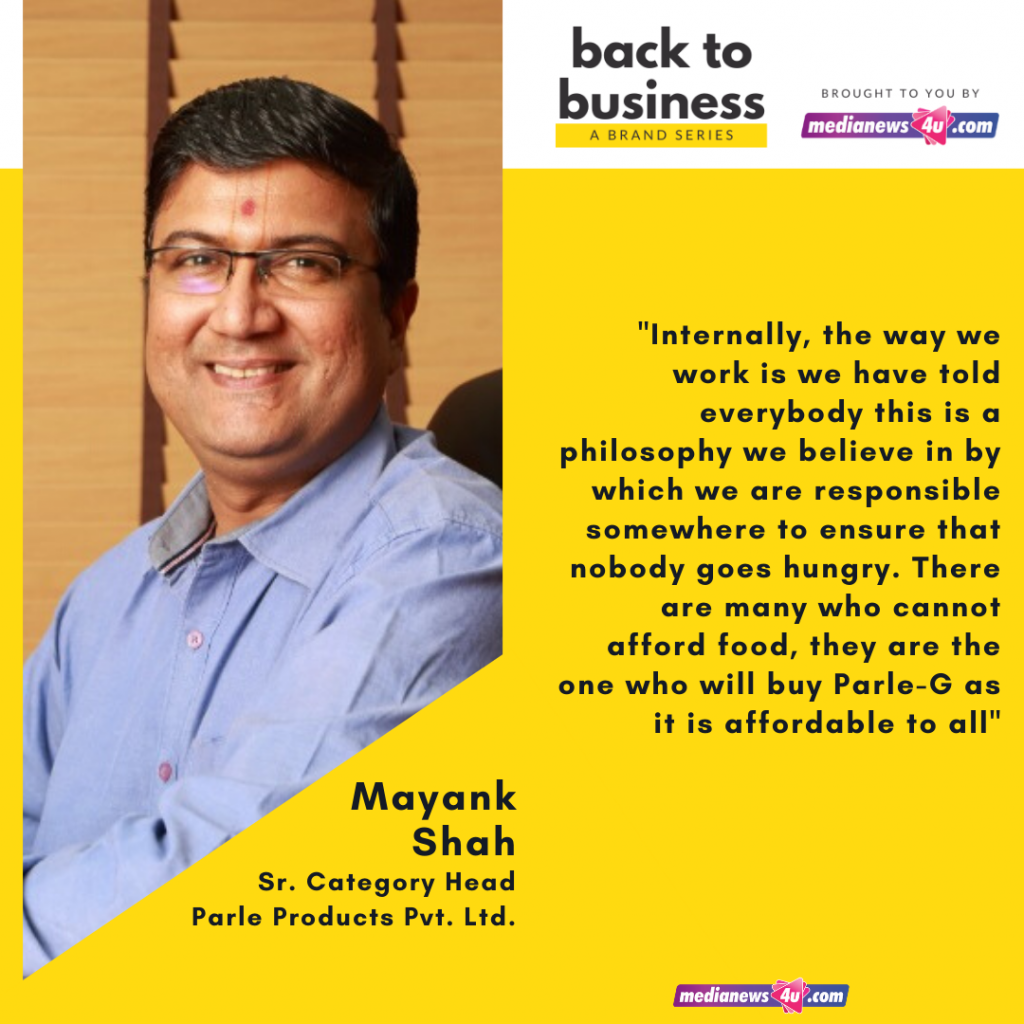
We are responsible for ensuring that nobody goes hungry and it is the company policy. We have pledged and we have donated three crore packs to the government and its affiliate agencies. We have given it to all the people in need so that they will not go hungry.
In this time we could have probably made money by selling that stock but we decided against it and gave it as a donation to the government to distribute this free to the people in need. We have walked that talk and you know that is something that you know even our employees, think it is their responsibility to ensure that nobody goes hungry during this pandemic.
Personally, as an employee, with a food shortage in the country due to the lockdown, with black marketing at its peak, we went out and said we will give this free, that you want to walk the talk in terms of philosophy and personally the philosophy which you stand for, that this is something that should be affordable to all. We are responsible for the food security of the country. I was really surprised and taken aback when the management announced this.

